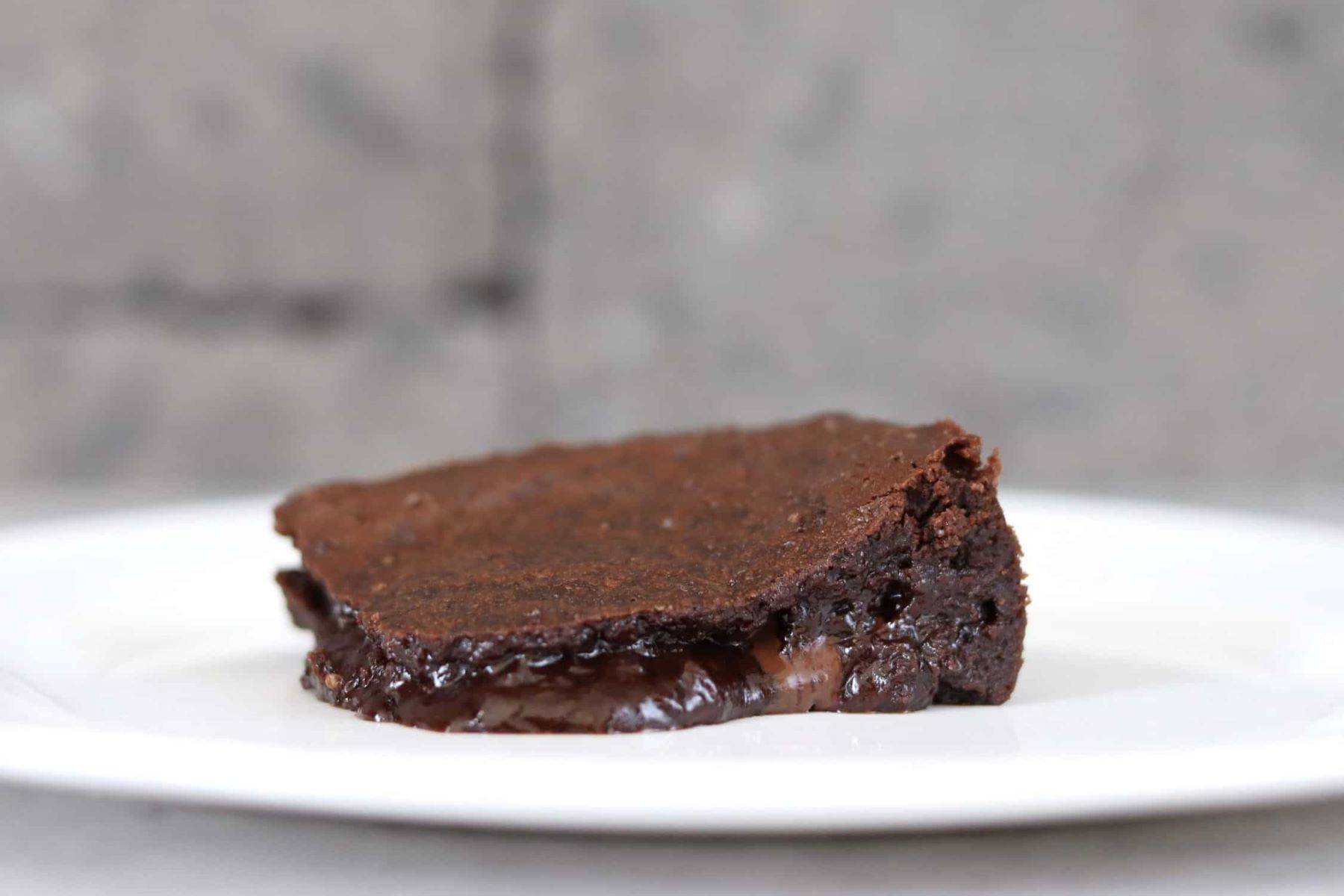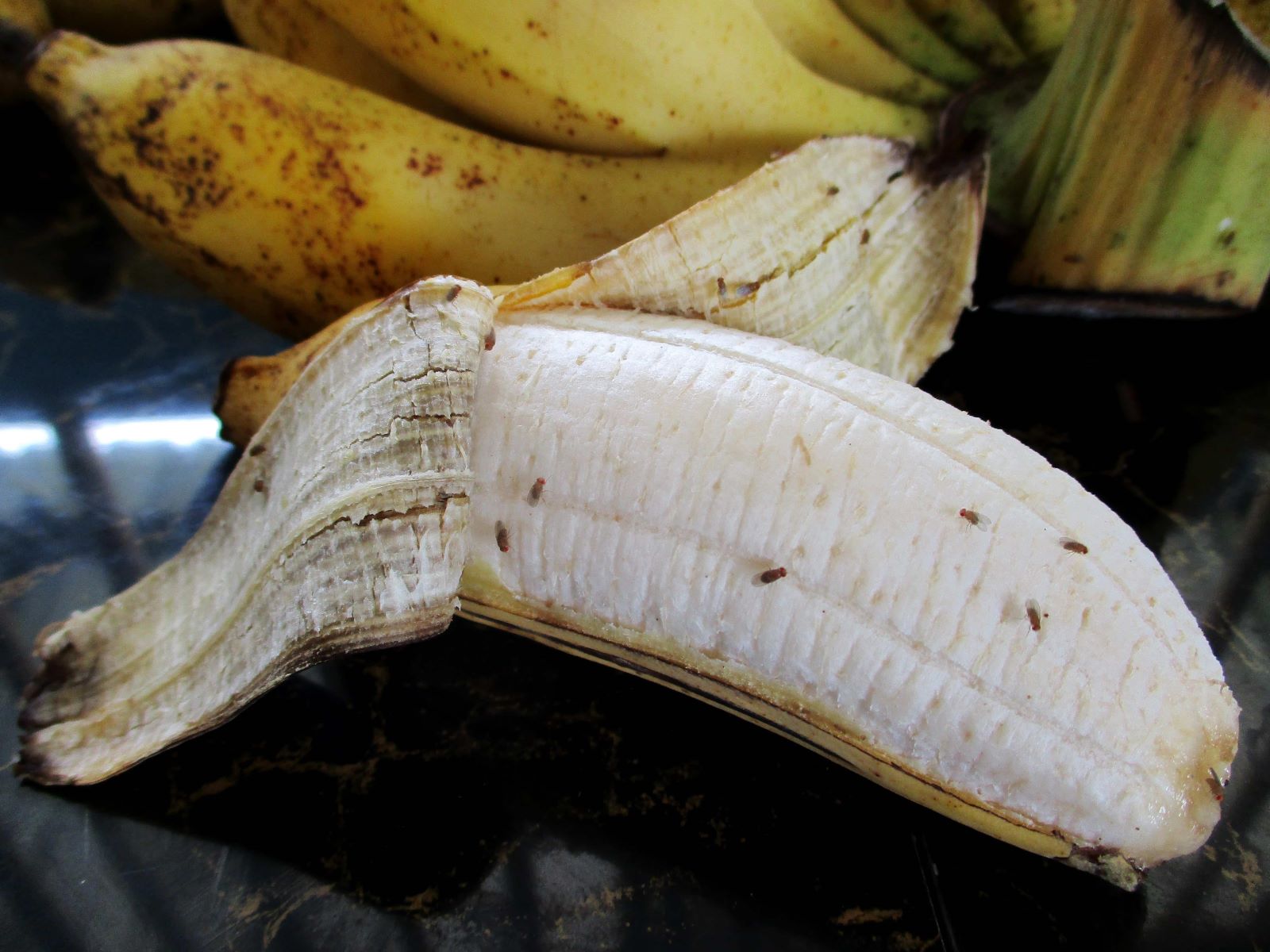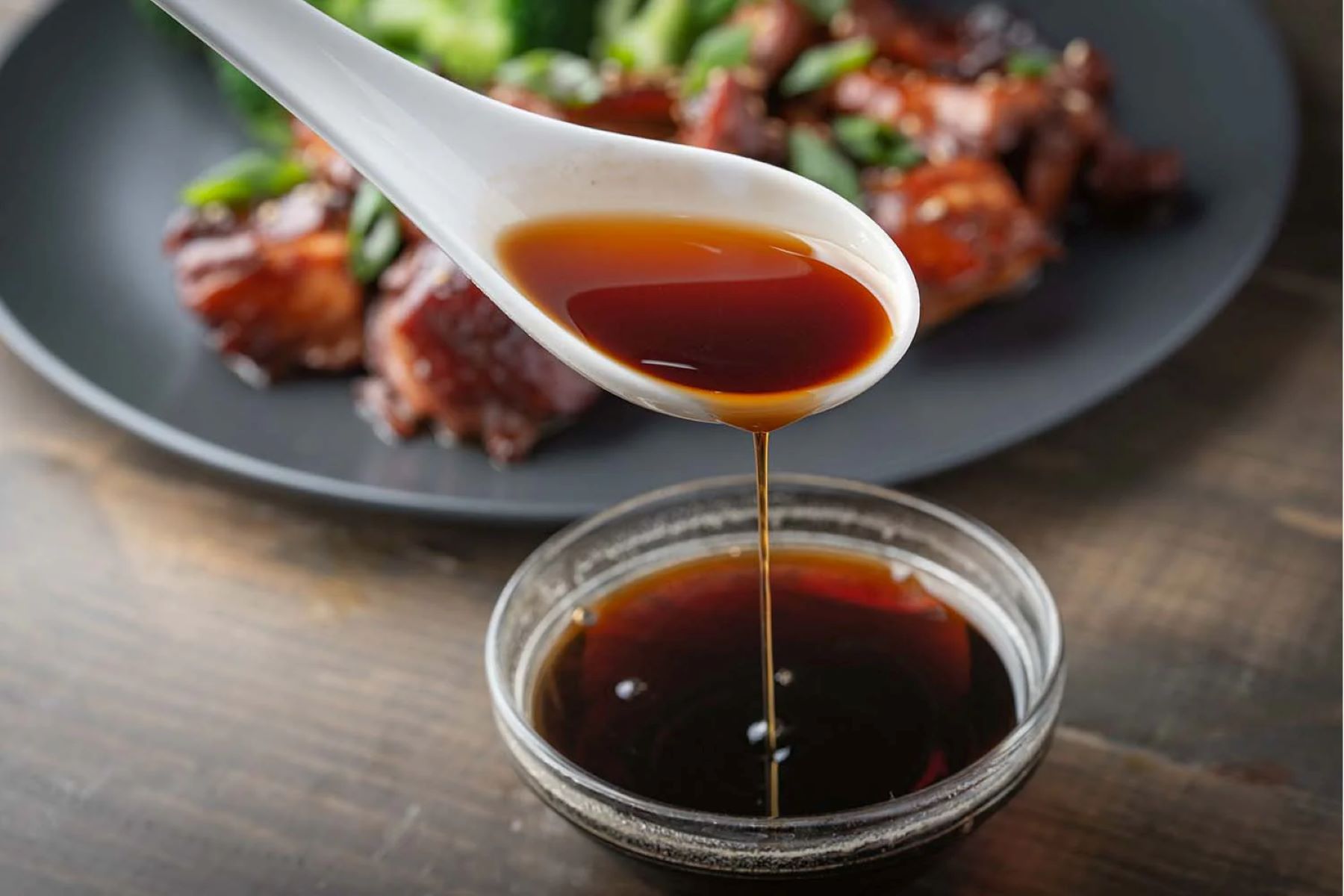Home>Food and Cooking>5 Genius Hacks To Mask Vinegar’s Taste In Your Sauce


Food and Cooking
5 Genius Hacks To Mask Vinegar’s Taste In Your Sauce
Published: February 11, 2024
Discover 5 genius hacks to eliminate the taste of vinegar in your sauce with these expert food and cooking tips. Say goodbye to the vinegar aftertaste!
(Many of the links in this article redirect to a specific reviewed product. Your purchase of these products through affiliate links helps to generate commission for Regretless.com, at no extra cost. Learn more)
Table of Contents
Introduction
Vinegar, with its sharp and tangy flavor, is a versatile ingredient that adds depth and complexity to a wide array of dishes. From salad dressings to marinades, and from pickles to sauces, vinegar plays a crucial role in elevating the taste profile of numerous culinary creations. However, its distinctive taste can sometimes overpower the overall flavor of a dish, leaving an undesirable aftertaste. Fortunately, there are several ingenious hacks to mitigate the strong taste of vinegar, allowing you to strike a harmonious balance in your sauces.
In this article, we will explore five genius hacks that will help you mask the taste of vinegar in your sauces without compromising the integrity of the dish. Whether you are preparing a savory barbecue sauce, a zesty vinaigrette, or a delectable marinara, these tips will empower you to harness the full potential of vinegar while ensuring that its assertive flavor remains subtle and complementary.
So, if you've ever found yourself hesitant to use vinegar in your sauces due to its overpowering taste, fret not! With the following creative and effective strategies at your disposal, you can confidently incorporate vinegar into your culinary repertoire, enhancing the depth and complexity of your sauces without the fear of its dominating presence. Let's delve into these ingenious hacks and unlock the secret to achieving perfectly balanced and tantalizing sauces that leave a lasting impression on your taste buds.
Sweeten It Up with Honey
When aiming to counterbalance the sharpness of vinegar in your sauce, incorporating honey can work wonders. Honey's natural sweetness not only helps to mellow the pungent taste of vinegar but also adds a delightful complexity to the flavor profile. The viscosity of honey also contributes to the texture of the sauce, providing a luscious and smooth consistency.
To effectively sweeten your sauce with honey, start by selecting a high-quality, flavorful honey that complements the other ingredients in your sauce. Whether you opt for the robust notes of buckwheat honey or the light and floral nuances of clover honey, choosing the right variety can significantly enhance the overall taste of your sauce.
When incorporating honey, it's essential to strike a harmonious balance between the tang of the vinegar and the sweetness of the honey. Begin by adding a small amount of honey to the sauce, then taste and adjust as needed. This gradual approach allows you to tailor the sweetness to your preference while ensuring that the honey complements the other flavors in the sauce without overpowering them.
Moreover, honey's natural composition contains enzymes and compounds that can help to mellow the acidity of the vinegar, resulting in a more nuanced and well-rounded flavor profile. This transformative effect not only mitigates the sharpness of the vinegar but also imbues the sauce with a subtle depth and richness that is sure to tantalize the palate.
In addition to its flavor-enhancing properties, honey also possesses natural preservative qualities, which can contribute to the longevity of your sauce. This can be particularly advantageous if you are preparing a large batch of sauce and intend to store it for future use.
By sweetening your sauce with honey, you can achieve a delightful harmony of flavors that beautifully masks the sharp taste of vinegar, resulting in a sauce that is both complex and well-balanced. So, the next time you find yourself grappling with the assertive nature of vinegar in your sauce, reach for a jar of honey and let its natural sweetness work its magic, transforming your sauce into a culinary masterpiece.
Balance with Sugar
When it comes to harmonizing the flavors in your sauce and taming the sharpness of vinegar, sugar emerges as a formidable ally in your culinary arsenal. The addition of sugar not only counteracts the acidity of vinegar but also imparts a subtle sweetness that can elevate the overall taste profile of your sauce.
To effectively balance the taste of vinegar with sugar, it is essential to choose the right type of sugar that complements the flavor profile of your sauce. Whether you opt for granulated sugar, brown sugar, or even alternative sweeteners such as maple syrup or agave nectar, the choice of sugar can significantly influence the final taste of your sauce.
Granulated sugar, with its neutral sweetness, is a versatile option that seamlessly integrates into a wide range of sauces, providing a balanced sweetness that harmonizes with the tang of vinegar. Brown sugar, on the other hand, offers a richer and more complex sweetness, imparting hints of caramel and molasses that can impart a delightful depth to your sauce.
When incorporating sugar into your sauce, it is important to start with a conservative amount and gradually adjust to achieve the desired level of sweetness. This incremental approach allows you to carefully balance the flavors, ensuring that the sugar complements the other ingredients without overshadowing their nuances.
The addition of sugar not only serves to mitigate the sharpness of vinegar but also contributes to the texture and body of the sauce. The natural hygroscopic properties of sugar can lend a luscious and velvety mouthfeel to the sauce, enhancing its overall appeal.
Moreover, the interaction between sugar and vinegar during the cooking process can result in a delightful caramelization effect, adding complexity and depth to the flavor profile of the sauce. This transformative process imbues the sauce with nuanced undertones, creating a symphony of flavors that captivate the palate.
By striking a delicate balance between the tang of vinegar and the subtle sweetness of sugar, you can achieve a harmonious fusion of flavors that transforms your sauce into a culinary masterpiece. So, the next time you seek to refine the taste of your sauce and mask the assertive nature of vinegar, harness the power of sugar and witness how it can elevate your culinary creations to new heights of gastronomic delight.
Add Some Heat with Spices
When seeking to mitigate the assertive taste of vinegar in your sauce, harnessing the aromatic and flavorful prowess of spices can be a game-changing strategy. The addition of carefully selected spices not only introduces a tantalizing heat to the sauce but also works harmoniously to temper the sharpness of vinegar, resulting in a well-balanced and multi-dimensional flavor profile.
To embark on this flavor-enhancing journey, consider the diverse array of spices at your disposal, each offering its own unique blend of aromas and heat. Whether you opt for the smoky warmth of paprika, the earthy complexity of cumin, or the fiery kick of red pepper flakes, the choice of spices can profoundly influence the character of your sauce.
The process of incorporating spices into your sauce begins with a thoughtful selection that complements the existing flavor profile while harmonizing with the tang of vinegar. By carefully assessing the base flavors of your sauce, you can identify the ideal spices that not only add heat but also seamlessly integrate into the overall composition.
Once you have chosen the spices, the method of incorporation is equally crucial. Whether you opt for whole spices for a nuanced infusion or ground spices for a more immediate release of flavors, the technique can significantly impact the final taste of your sauce. Additionally, the timing of adding spices during the cooking process can yield varying results, with some spices benefitting from early introduction to infuse their essence into the sauce, while others thrive when added towards the latter stages of cooking to preserve their potency.
The marriage of spices and vinegar in your sauce not only serves to counterbalance the sharpness but also introduces layers of complexity and depth. The aromatic dance of spices on the palate creates a sensory experience that transcends mere taste, captivating the senses and imparting a rich tapestry of flavors.
Furthermore, the addition of spices contributes to the visual allure of the sauce, infusing it with vibrant hues and specks of aromatic elements that signal a symphony of flavors to come. This visual enticement sets the stage for a culinary experience that is as visually captivating as it is tantalizing to the taste buds.
By infusing your sauce with the captivating heat of spices, you can transform the assertive taste of vinegar into a harmonious symphony of flavors that enthralls the palate. So, the next time you set out to refine the taste of your sauce, look to the enchanting world of spices and witness how their aromatic allure can elevate your culinary creations to unprecedented heights of gastronomic delight.
Incorporate Citrus Flavors
When endeavoring to diminish the assertive taste of vinegar in your sauce, the vibrant and zesty essence of citrus fruits emerges as a transformative addition that not only mitigates the sharpness but also infuses the sauce with a refreshing and invigorating dimension of flavor.
Citrus fruits, such as lemons, limes, oranges, and grapefruits, are renowned for their bright and tangy profiles, which can harmonize with the acidity of vinegar to create a well-balanced and multi-dimensional taste experience. The natural citric acidity of these fruits serves to complement and temper the sharpness of vinegar, resulting in a nuanced and refreshing flavor profile that tantalizes the palate.
To incorporate citrus flavors into your sauce, begin by selecting the most suitable fruit that aligns with the existing taste profile of your creation. For instance, the vibrant and zesty notes of lemon can impart a lively and invigorating twist to your sauce, while the mellow sweetness of orange can introduce a subtle complexity that complements the tang of vinegar. By carefully considering the unique attributes of each citrus fruit, you can tailor the flavor of your sauce to achieve the desired balance and character.
The process of infusing citrus flavors into your sauce involves extracting the zest and juice of the fruits, which contain the concentrated aromatic oils and vibrant acidity that can uplift the taste profile of the sauce. The zest, with its fragrant oils, adds a burst of citrus essence that enlivens the sauce, while the juice contributes a refreshing tang that harmonizes with the vinegar, resulting in a symphony of flavors that dance on the palate.
Moreover, the addition of citrus flavors not only serves to mitigate the assertive taste of vinegar but also introduces a refreshing and invigorating dimension to the sauce. The bright and zesty notes of citrus fruits awaken the senses and impart a tantalizing freshness that elevates the overall taste experience, making it a delightful accompaniment to a wide array of culinary creations.
By infusing your sauce with the vibrant and invigorating essence of citrus fruits, you can transform the assertive taste of vinegar into a harmonious fusion of flavors that captivates the palate. So, the next time you seek to refine the taste of your sauce and mask the sharpness of vinegar, look to the vibrant world of citrus and witness how its zesty allure can elevate your culinary creations to unprecedented heights of gastronomic delight.
Use Aromatics like Garlic and Onions
In the realm of culinary alchemy, the strategic incorporation of aromatics such as garlic and onions stands as a time-honored technique to imbue sauces with depth, complexity, and a harmonious balance of flavors. When endeavoring to mask the assertive taste of vinegar in your sauce, harnessing the aromatic prowess of these humble yet transformative ingredients can elevate your culinary creation to unprecedented heights of gastronomic delight.
Garlic, with its pungent and earthy essence, possesses the remarkable ability to mellow the sharpness of vinegar while imparting a rich and savory undertone to the sauce. Whether minced, sliced, or crushed, garlic releases its aromatic oils and compounds, infusing the sauce with a nuanced depth that complements the tang of vinegar. The process of gently sautéing garlic in oil prior to adding vinegar allows its flavors to blossom, creating a fragrant foundation that harmonizes with the assertive nature of vinegar, resulting in a well-rounded and captivating taste profile.
Similarly, the addition of onions contributes to the artful orchestration of flavors in the sauce, offering a delicate sweetness and subtle pungency that can temper the sharpness of vinegar. Whether diced, caramelized, or incorporated as a foundational base, onions infuse the sauce with layers of complexity, enhancing its overall depth and character. The natural sugars present in onions caramelize during the cooking process, adding a delightful sweetness that counterbalances the tang of vinegar, resulting in a symphony of flavors that captivates the palate.
Furthermore, the aromatic dance of garlic and onions in the sauce not only serves to mitigate the assertive taste of vinegar but also introduces a savory dimension that tantalizes the senses. The transformative interplay of these aromatics creates a sensory experience that transcends mere taste, evoking a symphony of flavors that resonates with the palate.
By infusing your sauce with the aromatic allure of garlic and onions, you can transform the assertive taste of vinegar into a harmonious fusion of flavors that elevates your culinary creation to new heights of gastronomic delight. So, the next time you seek to refine the taste of your sauce and mask the sharpness of vinegar, look to the transformative power of these aromatics and witness how they can elevate your culinary creations to unprecedented levels of flavor and complexity.
Conclusion
In the realm of culinary artistry, the ability to masterfully balance flavors and harmonize contrasting elements is a hallmark of exceptional cooking. When it comes to taming the assertive taste of vinegar in sauces, the five genius hacks presented in this article offer a treasure trove of creative strategies to transform the sharp tang of vinegar into a harmonious symphony of flavors. By sweetening sauces with honey, balancing with sugar, infusing with spices, incorporating citrus flavors, and harnessing the aromatic allure of garlic and onions, culinary enthusiasts can elevate their creations to unprecedented levels of gastronomic delight.
Through the strategic use of honey, chefs can introduce a natural sweetness that not only counteracts the sharpness of vinegar but also imbues the sauce with a delightful complexity. Similarly, the addition of sugar provides a nuanced sweetness that harmonizes with the tang of vinegar, resulting in a well-balanced flavor profile. The infusion of spices introduces a captivating heat that not only tempers the assertive taste of vinegar but also adds layers of complexity and depth to the sauce. Furthermore, the vibrant and zesty essence of citrus fruits serves to refreshingly complement the acidity of vinegar, creating a multi-dimensional taste experience. Lastly, the aromatic prowess of garlic and onions contributes to a rich and savory undertone that beautifully masks the assertive nature of vinegar, resulting in a symphony of flavors that captivates the palate.
In essence, these ingenious hacks empower culinary enthusiasts to wield the full potential of vinegar in their sauces, allowing them to create culinary masterpieces that are both complex and well-balanced. By skillfully employing these techniques, chefs can ensure that the assertive taste of vinegar remains subtle and complementary, resulting in sauces that leave a lasting impression on the palate.
As you embark on your culinary adventures, armed with these transformative strategies, may you infuse your sauces with a harmonious fusion of flavors that captivate the senses and elevate the dining experience to new heights of gastronomic delight. Embrace the art of balancing contrasting elements, and let the assertive nature of vinegar become a captivating asset in your culinary repertoire, enriching your sauces with depth, complexity, and a symphony of harmonious flavors.














